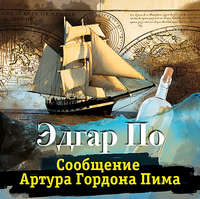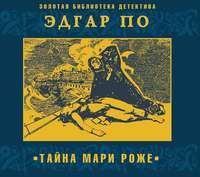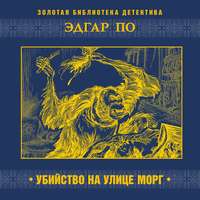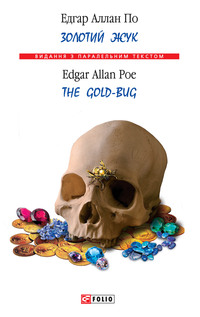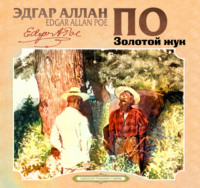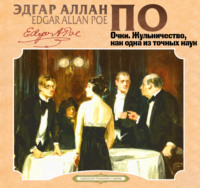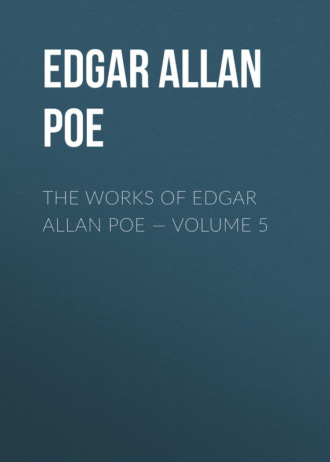 полная версия
полная версияThe Works of Edgar Allan Poe – Volume 5
“IN YOUTH I HAVE KNOWN ONE”
How often we forget all time, when lone Admiring Nature’s universal throne; Her woods – her wilds – her mountains-the intense Reply of Hers to Our intelligence!I IN youth I have known one with whom the Earth In secret communing held-as he with it, In daylight, and in beauty, from his birth: Whose fervid, flickering torch of life was lit From the sun and stars, whence he had drawn forth A passionate light such for his spirit was fit And yet that spirit knew-not in the hour Of its own fervor-what had o’er it power.II Perhaps it may be that my mind is wrought To a fever* by the moonbeam that hangs o’er, But I will half believe that wild light fraught With more of sovereignty than ancient lore Hath ever told-or is it of a thought The unembodied essence, and no more That with a quickening spell doth o’er us pass As dew of the night-time, o’er the summer grass?III Doth o’er us pass, when, as th’ expanding eye To the loved object-so the tear to the lid Will start, which lately slept in apathy? And yet it need not be – (that object) hid From us in life-but common-which doth lie Each hour before us – but then only bid With a strange sound, as of a harp-string broken T’ awake us – ‘Tis a symbol and a tokenIV Of what in other worlds shall be – and given In beauty by our God, to those alone Who otherwise would fall from life and Heaven Drawn by their heart’s passion, and that tone, That high tone of the spirit which hath striven Though not with Faith-with godliness – whose throne With desperate energy ‘t hath beaten down; Wearing its own deep feeling as a crown. * Query “fervor”? – ED.A PÆANI How shall the burial rite be read? The solemn song be sung? The requiem for the loveliest dead, That ever died so young?II Her friends are gazing on her, And on her gaudy bier, And weep! – oh! to dishonor Dead beauty with a tear!III They loved her for her wealth — And they hated her for her pride — But she grew in feeble health, And they love her – that she died.IV They tell me (while they speak Of her “costly broider’d pall”) That my voice is growing weak — That I should not sing at all —V Or that my tone should be Tun’d to such solemn song So mournfully – so mournfully, That the dead may feel no wrong.VI But she is gone above, With young Hope at her side, And I am drunk with love Of the dead, who is my bride. —VII Of the dead – dead who lies All perfum’d there, With the death upon her eyes, And the life upon her hair.VIII Thus on the coffin loud and long I strike – the murmur sent Through the grey chambers to my song, Shall be the accompaniment.IX Thou died’st in thy life’s June — But thou did’st not die too fair: Thou did’st not die too soon, Nor with too calm an air.X From more than fiends on earth, Thy life and love are riven, To join the untainted mirth Of more than thrones in heaven —XII Therefore, to thee this night I will no requiem raise, But waft thee on thy flight, With a Pæan of old days.NOTES
30. On the “Poems written in Youth” little comment is needed. This section includes the pieces printed for first volume of 1827 (which was subsequently suppressed), such poems from the first and second published volumes of 1829 and 1831 as have not already been given in their revised versions, and a few others collected from various sources. “Al Aaraaf” first appeared, with the sonnet “To Silence” prefixed to it, in 1829, and is, substantially, as originally issued. In the edition for 1831, however, this poem, its author’s longest, was introduced by the following twenty-nine lines, which have been omitted in – all subsequent collections:
AL AARAAF Mysterious star! Thou wert my dream All a long summer night — Be now my theme! By this clear stream, Of thee will I write; Meantime from afar Bathe me in light I Thy world has not the dross of ours, Yet all the beauty-all the flowers That list our love or deck our bowers In dreamy gardens, where do lie Dreamy maidens all the day; While the silver winds of Circassy On violet couches faint away. Little – oh “little dwells in thee” Like unto what on earth we see: Beauty’s eye is here the bluest In the falsest and untruest – On the sweetest air doth float The most sad and solemn note — If with thee be broken hearts, Joy so peacefully departs, That its echo still doth dwell, Like the murmur in the shell. Thou! thy truest type of grief Is the gently falling leaf! Thy framing is so holy Sorrow is not melancholy.31. The earliest version of “Tamerlane” was included in the suppressed volume of 1827, but differs very considerably from the poem as now published. The present draft, besides innumerable verbal alterations and improvements upon the original, is more carefully punctuated, and, the lines being indented, presents a more pleasing appearance, to the eye at least.
32. “To Helen” first appeared in the 1831 volume, as did also “The Valley of Unrest” (as “The Valley Nis”), “Israfel,” and one or two others of the youthful pieces. The poem styled “Romance,” constituted the Preface of the 1829 volume, but with the addition of the following lines:
Succeeding years, too wild for song, Then rolled like tropic storms along, Where, through the garish lights that fly Dying along the troubled sky, Lay bare, through vistas thunder-riven, The blackness of the general Heaven, That very blackness yet doth Ring Light on the lightning’s silver wing. For being an idle boy lang syne; Who read Anacreon and drank wine, I early found Anacreon rhymes Were almost passionate sometimes — And by strange alchemy of brain His pleasures always turned to pain — His naiveté to wild desire — His wit to love-his wine to fire — And so, being young and dipt in folly, I fell in love with melancholy, And used to throw my earthly rest And quiet all away in jest — I could not love except where Death Was mingling his with Beauty’s breath — Or Hymen, Time, and Destiny, Were stalking between her and me. But now my soul hath too much room — Gone are the glory and the gloom — The black hath mellow’d into gray, And all the fires are fading away. My draught of passion hath been deep — I revell’d, and I now would sleep And after drunkenness of soul Succeeds the glories of the bowl An idle longing night and day To dream my very life away. But dreams – of those who dream as I, Aspiringly, are damned, and die: Yet should I swear I mean alone, By notes so very shrilly blown, To break upon Time’s monotone, While yet my vapid joy and grief Are tintless of the yellow leaf — Why not an imp the graybeard hath, Will shake his shadow in my path — And e’en the graybeard will o’erlook Connivingly my dreaming-book.DOUBTFUL POEMS
ALONE
From childhood’s hour I have not been As others were – I have not seen As others saw – I could not bring My passions from a common spring — From the same source I have not taken My sorrow – I could not awaken My heart to joy at the same tone — And all I lov’d —I lov’d alone — Then– in my childhood – in the dawn Of a most stormy life – was drawn From ev’ry depth of good and ill The mystery which binds me still — From the torrent, or the fountain — From the red cliff of the mountain — From the sun that ‘round me roll’d In its autumn tint of gold — From the lightning in the sky As it pass’d me flying by — From the thunder, and the storm — And the cloud that took the form (When the rest of Heaven was blue) Of a demon in my view —{This poem is no longer considered doubtful as it was in 1903. Liberty has been taken to replace the book version with an earlier, perhaps more original manuscript version – Ed}
TO ISADORE
I BENEATH the vine-clad eaves, Whose shadows fall before Thy lowly cottage door Under the lilac’s tremulous leaves — Within thy snowy claspeèd hand The purple flowers it bore.. Last eve in dreams, I saw thee stand, Like queenly nymphs from Fairy-land — Enchantress of the flowery wand, Most beauteous Isadore!II And when I bade the dream Upon thy spirit flee, Thy violet eyes to me Upturned, did overflowing seem With the deep, untold delight Of Love’s serenity; Thy classic brow, like lilies white And pale as the Imperial Night Upon her throne, with stars bedight, Enthralled my soul to thee!III Ah I ever I behold Thy dreamy, passionate eyes, Blue as the languid skies Hung with the sunset’s fringe of gold; Now strangely clear thine image grows, And olden memories Are startled from their long repose Like shadows on the silent snows When suddenly the night-wind blows Where quiet moonlight ties.IV Like music heard in dreams, Like strains of harps unknown, Of birds forever flown Audible as the voice of streams That murmur in some leafy dell, I hear thy gentlest tone, And Silence cometh with her spell Like that which on my tongue doth dwell, When tremulous in dreams I tell My love to thee alone!V In every valley heard, Floating from tree to tree, Less beautiful to, me, The music of the radiant bird, Than artless accents such as thine Whose echoes never flee! Ah! how for thy sweet voice I pine: — For uttered in thy tones benign (Enchantress!) this rude name of mine Doth seem a melody!THE VILLAGE STREET
IN these rapid, restless shadows, Once I walked at eventide, When a gentle, silent maiden, Wal ked in beauty at my side She alone there walked beside me All in beauty, like a bride. Pallidly the moon was shining On the dewy meadows nigh; On the silvery, silent rivers, On the mountains far and high On the ocean’s star-lit waters, Where the winds a-weary die. Slowly, silently we wandered From the open cottage door, Underneath the elm’s long branches To the pavement bending o’er; Underneath the mossy willow And the dying sycamore. With the myriad stars in beauty All bedight, the heavens were seen, Radiant hopes were bright around me, Like the light of stars serene; Like the mellow midnight splendor Of the Night’s irradiate queen. Audibly the elm-leaves whispered Peaceful, pleasant melodies, Like the distant murmured music Of unquiet, lovely seas: While the winds were hushed in slumber In the fragrant flowers and trees. Wondrous and unwonted beauty Still adorning all did seem, While I told my love in fables ‘Neath the willows by the stream; Would the heart have kept unspoken Love that was its rarest dream! Instantly away we wandered In the shadowy twilight tide, She, the silent, scornful maiden, Walking calmly at my side, With a step serene and stately, All in beauty, all in pride. Vacantly I walked beside her. On the earth mine eyes were cast; Swift and keen there came unto me Ritter memories of the past On me, like the rain in Autumn On the dead leaves, cold and fast. Underneath the elms we parted, By the lowly cottage door; One brief word alone was uttered Never on our lips before; And away I walked forlornly, Broken-hearted evermore. Slowly, silently I loitered, Homeward, in the night, alone; Sudden anguish bound my spirit, That my youth had never known; Wild unrest, like that which cometh When the Night’s first dream hath flown. Now, to me the elm-leaves whisper Mad, discordant melodies, And keen melodies like shadows Haunt the moaning willow trees, And the sycamores with laughter Mock me in the nightly breeze. Sad and pale the Autumn moonlight Through the sighing foliage streams; And each morning, midnight shadow, Shadow of my sorrow seems; Strive, 0 heart, forget thine idol! And, 0 soul, forget thy dreams!THE FOREST REVERIE
‘Tis said that when The hands of men Tamed this primeval wood, And hoary trees with groans of woe, Like warriors by an unknown foe, Were in their strength subdued, The virgin Earth Gave instant birth To springs that ne’er did flow That in the sun Did rivulets run, And all around rare flowers did blow The wild rose pale Perfumed the gale And the queenly lily adown the dale (Whom the sun and the dew And the winds did woo), With the gourd and the grape luxuriant grew. So when in tears The love of years Is wasted like the snow, And the fine fibrils of its life By the rude wrong of instant strife Are broken at a blow Within the heart Do springs upstart Of which it doth now know, And strange, sweet dreams, Like silent streams That from new fountains overflow, With the earlier tide Of rivers glide Deep in the heart whose hope has died — Quenching the fires its ashes hide, — Its ashes, whence will spring and grow Sweet flowers, ere long, The rare and radiant flowers of song!NOTES
Of the many verses from time to time ascribed to the pen of Edgar Poe, and not included among his known writings, the lines entitled “Alone” have the chief claim to our notice. Fac-simile copies of this piece had been in possession of the present editor some time previous to its publication in “Scribner’s Magazine” for September, 1875; but as proofs of the authorship claimed for it were not forthcoming, he refrained from publishing it as requested. The desired proofs have not yet been adduced, and there is, at present, nothing but internal evidence to guide us. “Alone” is stated to have been written by Poe in the album of a Baltimore lady (Mrs. Balderstone?), on March 17th, 1829, and the facsimile given in “Scribner’s” is alleged to be of his handwriting. If the caligraphy be Poe’s, it is different in all essential respects from all the many specimens known to us, and strongly resembles that of the writer of the heading and dating of the manuscript, both of which the contributor of the poem acknowledges to have been recently added. The lines, however, if not by Poe, are the most successful imitation of his early mannerisms yet made public, and, in the opinion of one well qualified to speak, “are not unworthy on the whole of the parentage claimed for them.”
While Edgar Poe was editor of the “Broadway Journal,” some lines “To Isadore” appeared therein, and, like several of his known pieces, bore no signature. They were at once ascribed to Poe, and in order to satisfy questioners, an editorial paragraph subsequently appeared saying they were by “A. Ide, junior.” Two previous poems had appeared in the “Broadway journal” over the signature of “A. M. Ide,” and whoever wrote them was also the author of the lines “To Isadore.” In order, doubtless, to give a show of variety, Poe was then publishing some of his known works in his journal over noms de plume, and as no other writings whatever can be traced to any person bearing the name of “A. M. Ide,” it is not impossible that the poems now republished in this collection may be by the author of “The Raven.” Having been published without his usual elaborate revision, Poe may have wished to hide his hasty work under an assumed name. The three pieces are included in the present collection, so the reader can judge for himself what pretensions they possess to be by the author of “The Raven.”
1
The “Hortulus Animæ cum Oratiunculis Aliquibus Superadditis” of Grünninger
2
MD
3
Ils ecrivaient sur la Philosophie (Cicero, Lucretius, Seneca) mais c’etait la Philosophie Grecque. —Condorcet.
4
Quere-Arouet?
5
“Book of Gems,” Edited by S. C. Hall
6
A star was discovered by Tycho Brahe which appeared
suddenly in the heavens – attained, in a few days, a
brilliancy surpassing that of Jupiter – then as suddenly
disappeared, and has never been seen since.
7
This flower is much noticed by Lewenhoeck and Tournefort.
The bee, feeding upon its blossom, becomes intoxicated.
8
Clytia – The Chrysanthemum Peruvianum, or, to employ a
better-known term, the turnsol – which continually turns
towards the sun, covers itself, like Peru, the country from
which it comes, with dewy clouds which cool and refresh its
flowers during the most violent heat of the day. —B. de St. Pierre.
9
This flower is much noticed by Lewenhoeck and Tournefort.
The bee, feeding upon its blossom, becomes intoxicated.
10
Clytia – The Chrysanthemum Peruvianum, or, to employ a
better-known term, the turnsol – which continually turns
towards the sun, covers itself, like Peru, the country from
which it comes, with dewy clouds which cool and refresh its
flowers during the most violent heat of the day. —B. de St. Pierre.
11
Clytia – The Chrysanthemum Peruvianum, or, to employ a
better-known term, the turnsol – which continually turns
towards the sun, covers itself, like Peru, the country from
which it comes, with dewy clouds which cool and refresh its
flowers during the most violent heat of the day. —B. de St. Pierre.
12
There is cultivated in the king’s garden at Paris, a
species of serpentine aloes without prickles, whose large
and beautiful flower exhales a strong odour of the vanilla,
during the time of its expansion, which is very short. It
does not blow till towards the month of July – you then
perceive it gradually open its petals – expand them – fade
and die. —St. Pierre.
13
There is found, in the Rhone, a beautiful lily of the
Valisnerian kind. Its stem will stretch to the length of
three or four feet – thus preserving its head above water
in the swellings of the river.
14
The Hyacinth.
15
It is a fiction of the Indians, that Cupid was first
seen floating in one of these down the river Ganges – and
that he still loves the cradle of his childhood.
16
And golden vials full of odors which are the prayers of the saints.
– Rev. St. John.
17
The Humanitarians held that God was to be understood as
having a really human form. —Vide Clarke’s Sermons, vol.
1, page 26, fol. edit.
The drift of Milton’s argument, leads him to employ language
which would appear, at first sight, to verge upon their
doctrine; but it will be seen immediately, that he guards
himself against the charge of having adopted one of the most
ignorant errors of the dark ages of the church. —Dr. Sumner’s Notes on Milton’s Christian Doctrine.
This opinion, in spite of many testimonies to the contrary,
could never have been very general. Andeus, a Syrian of
Mesopotamia, was condemned for the opinion, as heretical. He
lived in the beginning of the fourth century. His disciples
were called Anthropmorphites. —Vide Du Pin.
Among Milton’s poems are these lines: —
Dicite sacrorum præsides nemorum Deæ, &c.
Quis ille primus cujus ex imagine
Natura solers finxit humanum genus?
Eternus, incorruptus, æquævus polo,
Unusque et universus exemplar Dei. – And afterwards,
Non cui profundum Cæcitas lumen dedit
Dircæus augur vidit hunc alto sinu, &c.
18
Seltsamen Tochter Jovis
Seinem Schosskinde
Der Phantasie. —Göethe.
19
Sightless – too small to be seen —Legge.
20
I have often noticed a peculiar movement of the fire-flies;
– they will collect in a body and fly off, from a common
centre, into innumerable radii.
21
Therasæa, or Therasea, the island mentioned by Seneca,
which, in a moment, arose from the sea to the eyes of
astonished mariners.
22
Some star which, from the ruin’d roof Of shak’d Olympus,
by mischance, did fall. —Milton.
23
* Voltaire, in speaking of Persepolis, says, “Je connois
bien l’admiration qu’inspirent ces ruines – mais un palais
erigé au pied d’une chaine des rochers sterils – peut il
être un chef d’oevure des arts!” [Voila les arguments de M. Voltaire.]
24
“Oh! the wave” – Ula Degusi is the Turkish appellation;
but, on its own shores, it is called Bahar Loth, or
Almotanah. There were undoubtedly more than two cities
engluphed in the “dead sea.” In the valley of Siddim were
five – Adrah, Zeboin, Zoar, Sodom and Gomorrah. Stephen of
Byzantium mentions eight, and Strabo thirteeen, (engulphed)
– but the last is out of all reason.
It is said, (Tacitus, Strabo, Josephus, Daniel of St. Saba, Nau,
Maundrell, Troilo, D’Arvieux) that after an excessive drought, the vestiges of columns, walls, &c. are seen above the surface. At anyseason, such remains may be discovered by looking down into the transparent lake, and at such distances as would argue the existence of many settlements in the space now usurped by the ‘Asphaltites.’
25
Eyraco – Chaldea.
26
I have often thought I could distinctly hear the sound of
the darkness as it stole over the horizon.
27
Fairies use flowers for their charactery. —Merry Wives of Windsor. [William Shakespeare]
28
In Scripture is this passage – “The sun shall not harm
thee by day, nor the moon by night.” It is perhaps not
generally known that the moon, in Egypt, has the effect of
producing blindness to those who sleep with the face exposed
to its rays, to which circumstance the passage evidently
alludes.
29
The Albatross is said to sleep on the wing.
30
I met with this idea in an old English tale, which I am
now unable to obtain and quote from memory: – “The verie
essence and, as it were, springe-heade, and origine of all
musiche is the verie pleasaunte sounde which the trees of
the forest do make when they growe.”
31
The wild bee will not sleep in the shade if there be
moonlight. The rhyme in this verse, as in one about sixty
lines before, has an appearance of affectation. It is,
however, imitated from Sir W. Scott, or rather from Claud
Halcro – in whose mouth I admired its effect:
O! were there an island,
Tho’ ever so wild
Where woman might smile, and
No man be beguil’d, &c.
32
* With the Arabians there is a medium between Heaven and
Hell, where men suffer no punishment, but yet do not attain




